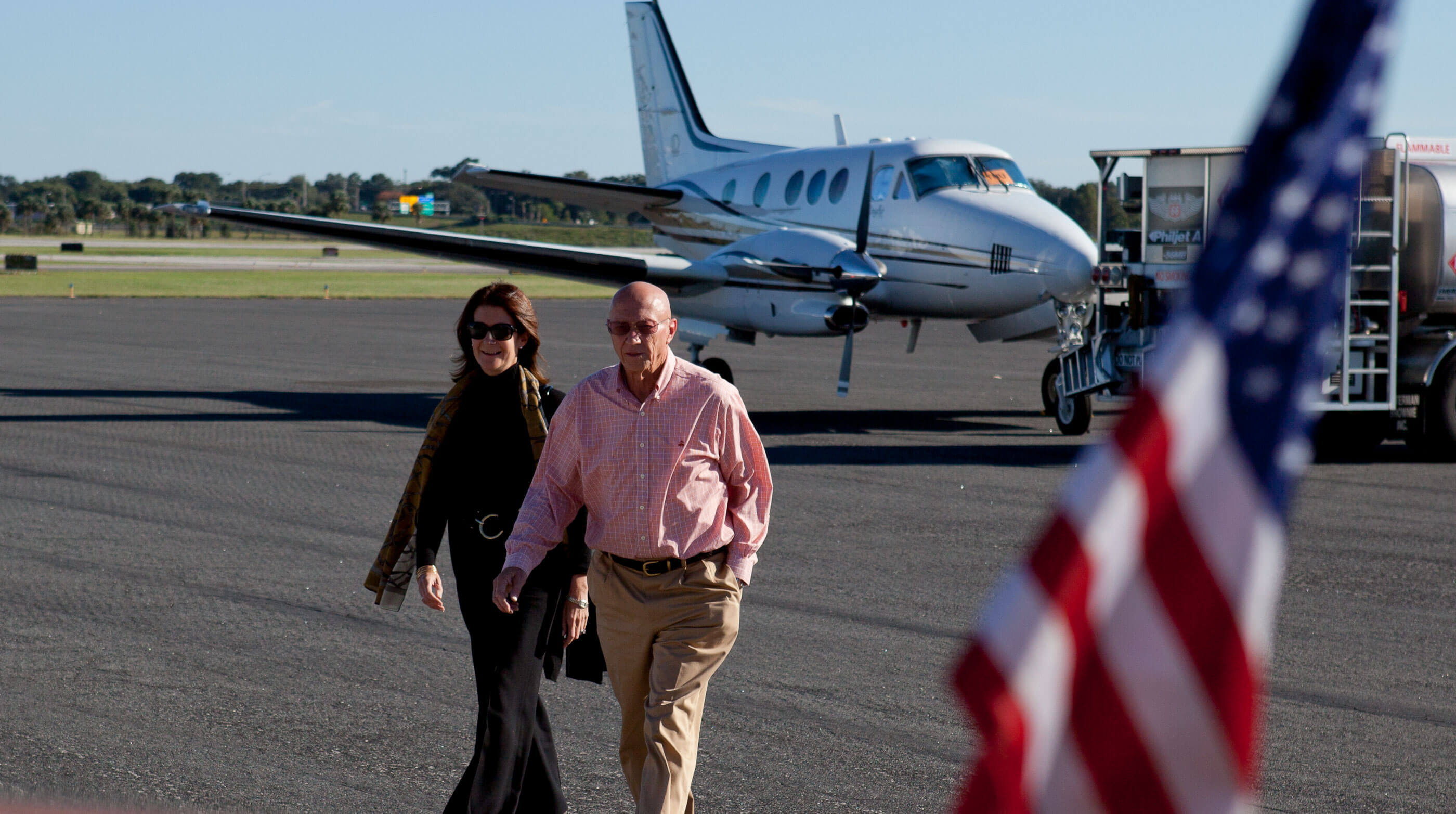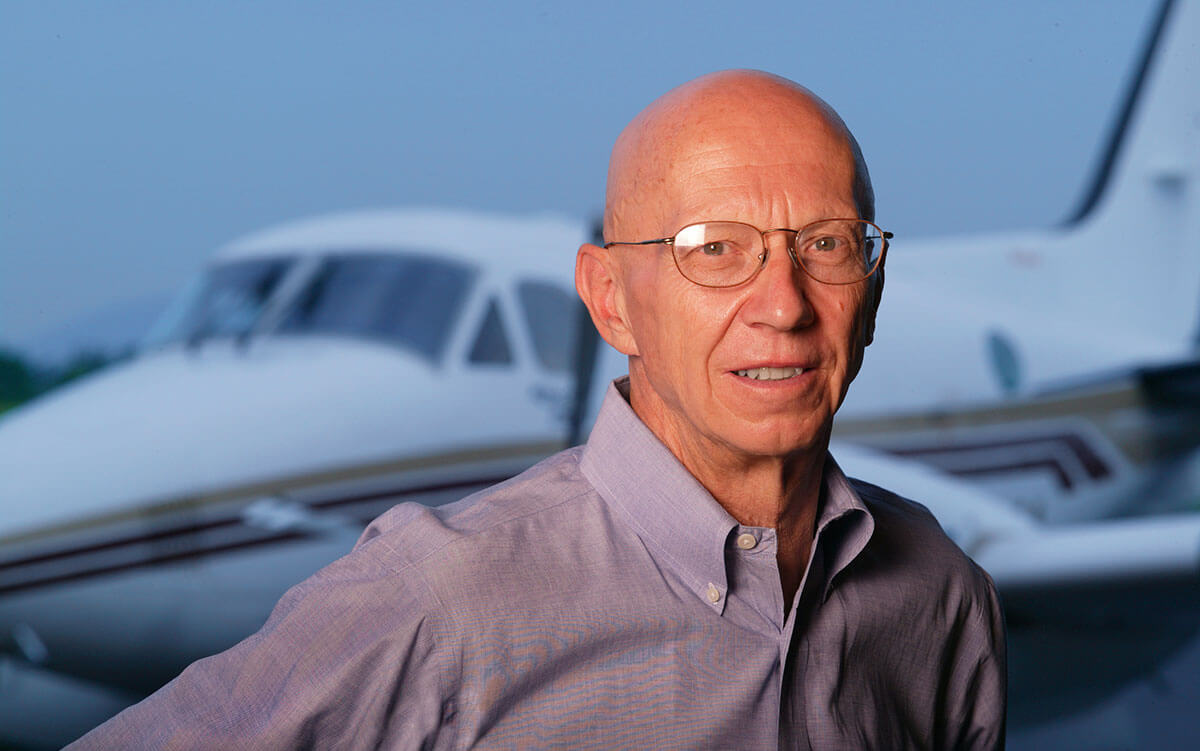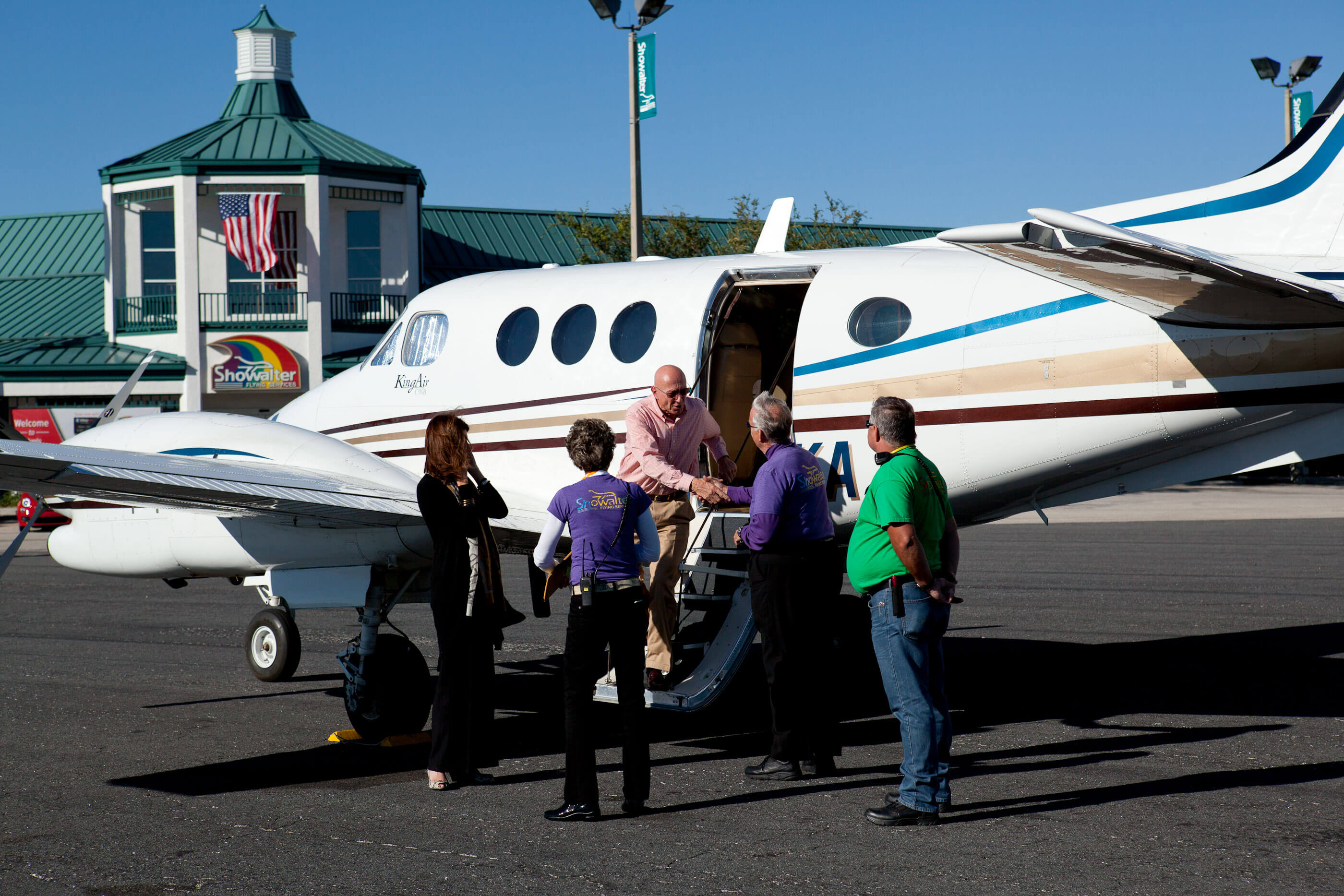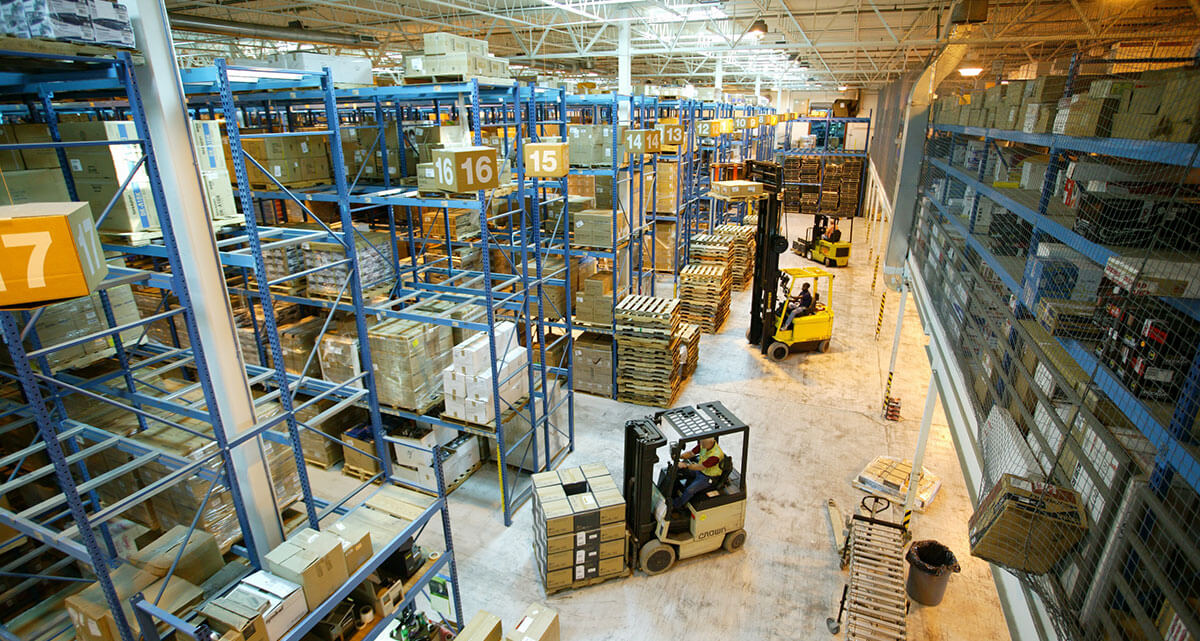
NBAA Member tells how industry impacts companies and communities.
Jan 11, 2013

Bill Crutchfield, a business aircraft operator who in 1974 founded Charlottesville, VA-based Crutchfield Corporation – one of the largest and most recognized specialty direct retailers of consumer electronics – thinks that the more business aviation advocates focus on how the industry makes a difference in the lives of everyday people, the less trouble aircraft operators will have with critics of companies using business airplanes.
Ever since its inception, the No Plane No Gain campaign has emphasized the various ways business aviation benefits America, including how the industry provides more than a million highly skilled jobs and serves as a lifeline to America’s small and medium-sized cities and towns.
Speaking Authoritatively as a Businessman-Pilot
It’s hard to imagine a person better qualified to speak on the topic of No Plane No Gain than Crutchfield, who has enjoyed a distinguished career as both a pilot and entrepreneur.

A former U.S. Air Force officer, Crutchfield has been an aviator for more than five decades, owning and operating eight different aircraft, from a Cessna 150 to his current King Air C90B. The Federal Aviation Administration has designated him a Wright Brothers Master Pilot for his more than 50 years of safe flying. Crutchfield says being a pilot has greatly improved his efficiency and effectiveness as a CEO, and he believes that maintaining a high level of piloting proficiency has enhanced his business decision-making skills.
As a businessman, Crutchfield built a thriving enterprise from scratch, and he credits much of his success to listening to his customers and providing them with outstanding service. “Because my name is on the business, I work hard to make sure you get the best possible shopping experience,” he declares on the company’s web site.
Crutchfield has received numerous business awards, including being named Ernst & Young’s 1999 Master Entrepreneur of the Year for Virginia. In 2007 he was inducted into the Consumer Electronics Association Hall of Fame.
Serendipitous Synergy
The convergence of three events in 1997 – all related to Crutchfield’s use of business aviation – helped change the economic fortunes of an entire region. First, Crutchfield bought a new Beechcraft King Air C90B. Second, the governor of Virginia appointed him to the senior board of the University of Virginia. Because he had an airplane, the board chairman appointed him to the committee that oversees the university’s only branch college, the University of Virginia’s College at Wise. The college is a six-hour drive from Charlottesville, where both the University of Virginia and Crutchfield Corporation are located, but it is only an hour-long flight in his King Air. The third event was his need to open a satellite call center.
At the same time Crutchfield was becoming involved with the University of Virginia and its branch college in Wise, he was wrestling with a problem that any CEO would love to have: how to increase staffing to accommodate growth. In 1997 Charlottesville had the second-lowest unemployment rate in the country at 0.8 percent, making it extremely difficult for Crutchfield to add sales and customer service staffs at the company’s headquarters. However, he said the solution to the manpower problem was relatively simple: set up a remote call center.

“We wanted to keep the new center in Virginia for sales tax reasons, so we initially considered Norfolk, which has a great airport, a superb economic development program, fabulous fiber-optics [for phone lines] and commercial buildings I could have rented. More importantly, it has a great workforce,” with 16,000 veterans being released annually from the Navy, Army and Air Force bases in the area.
But instead of establishing the new call center in Norfolk, Crutchfield made what he called a “counterintuitive decision” to set up shop in Wise, which is in the southwest corner of Virginia, just six miles from the Kentucky border in Appalachia, one of the poorest parts of the United States.
On the surface, it appeared as if Norfolk would have been the better choice. There was very little commercial office space available in Wise, “but fortunately Verizon loaned us a floor in its building,” said Crutchfield. Also, setting up digital communications to connect to Charlottesville “was a nightmare,” he, added, noting that he had to work with three different phone companies to establish a T1, a high-performance fiber-optic telephone line capable of carrying large amounts of data.
However, with an unemployment rate of over 14 percent at the time, Southwest Virginia had a large pool of potential workers, and area businessmen told Crutchfield that the residents had a tremendous work ethic. The citizens had a unique mountain dialect that might have hindered their ability to be call center operators, but linguistic tests conducted by Crutchfield revealed that as long as potential workers’ conversational grammar was good, it wasn’t a problem. “It turned out to be an asset, not a liability,” he said.
Airplanes can be used for other purposes than enriching the company. Then can enrich the greater community.
Wise also is harder to reach by air than Norfolk, since the former town is an hour’s drive from the nearest commercial service airport (in Tri-Cities, TN). But Wise has a good general aviation facility, Lonesome Pine Airport (LNP), which features a 5,280-foot-long runway and radar coverage right down to the ground, which Crutchfield says is nice to have when you are flying IMC in the mountainous region. Shortly after deciding to set up a call center in Wise, the Crutchfield King Air began flying personnel trainers from Charlottesville to Wise to begin staffing the new facility.
An Economic Stimulus
Today, the Crutchfield Corporation’s Wise call center is platinum-standard and state of the art. “Once we made it work, it worked really well,” said Crutchfield, who has helped state and local government officials promote the region as a good location for call centers. As a result, Travelocity, AT&T, Verizon and Sykes (a leading third-party technical support and customer service provider) have also established call centers in the region, resulting in the creation of up to 2,000 jobs over time. Crutchfield notes that these are new, incremental jobs, not ones that pull workers away from existing businesses. Three years after Crutchfield Corporation came to Wise, unemployment there dropped to 4.5 percent.
“These new call-center employees are buying houses, furniture and cars, and taking their families to restaurants – all things that stimulate economic activity,” Crutchfield says proudly. He estimates that between 5,000 and 10,000 people have been positively impacted by the establishment of call centers in southwest VA.

“So many decisions in business are gut decisions,” said Crutchfield. “If mine had been a public company, I would have gone to Norfolk. It posed zero risk. But I went to Wise because I knew these were great people, and I knew that I could help turn the local economy around. The governor and other Virginia politicians are pleased with what I have done. The community really has appreciated it. It’s been so exciting.”
“My message is that airplanes can be used for other purposes than enriching the company,” continued Crutchfield. “They can enrich the greater community. This is a case that if had I not had an airplane and the FAA not invested in that local airport down there, I would not have opened a call center in Wise and these other companies would have not come in.
“So what does ‘gain’ really mean? It means general aviation can be used to serve people who are not in our industry, people who are just everyday Americans. I think if that message got out more, we might not see the hostility in Washington, DC that we are seeing now.”


 International Business Aviation Council Ltd.
International Business Aviation Council Ltd.